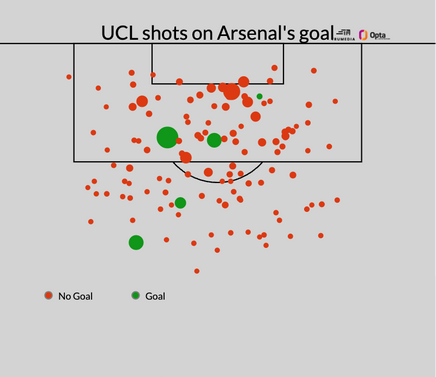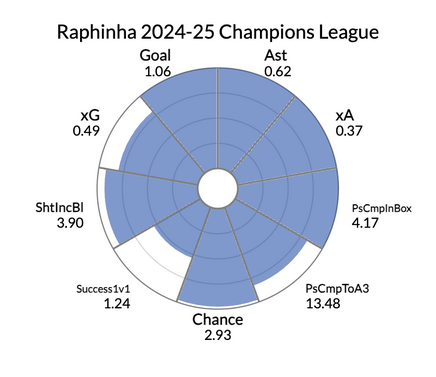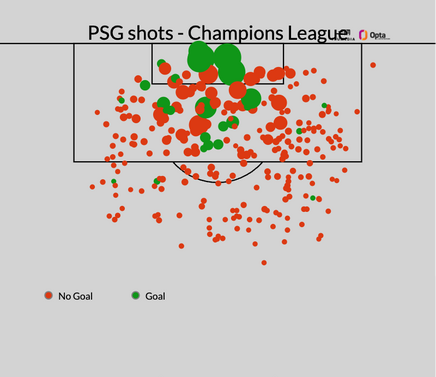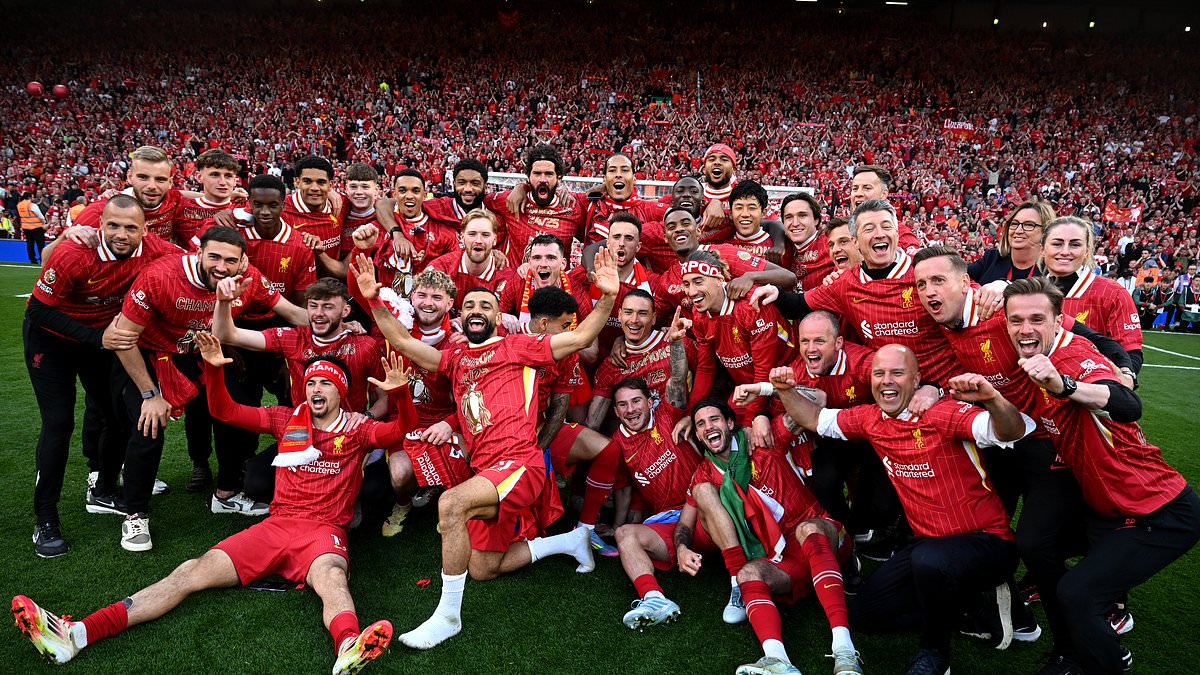Just three games separate the remaining four teams from potentially lifting the most coveted trophy in European club football. At this advanced stage of the competition, past wobbles or inconsistent performances on the path to the semifinals matter little; the chance is always there. None of Arsenal, Barcelona, Inter Milan, or Paris Saint-Germain are considered massive underdogs entering these final matches, and it seems highly plausible that any, if not all, of them could be crowned champions of Europe by the end of May.
Conversely, none of these teams are without flaws. Every single one has suffered at least one defeat in the tournament thus far. While three of the four finalists finished second, third, and fourth respectively in the initial league phase standings, the team that barely scraped into the knockout rounds on the final matchday is now considered just as likely a contender as any other. This year`s final four appears remarkably evenly matched.
So, what factors might ultimately tip the scales towards victory or away from glory for these elite clubs? Let`s explore below.
1. Arsenal
Why they will win the Champions League: Defense wins titles
While Inter Milan may have conceded fewer goals, no team restricts their opponents` attacking opportunities more effectively than Arsenal. Across their matches, they have allowed opponents shooting chances worth an average of just 0.69 non-penalty expected goals (npxG) per game. By nearly every defensive metric, Arsenal`s backline is elite. They permit opponents a mere 16.4 touches per game inside their penalty box, almost five fewer than any other team remaining, and concede just 10.3 shots per game. This impressive record holds even after facing a potent attack like Real Madrid`s, which barely registered an expected goal until a defensive error gifted Vinicius Junior a clear chance.

The old adage suggests defense is key to winning championships, and this rings particularly true in the Champions League. Over the past six seasons, Real Madrid is the only club to win the competition while allowing more than one npxG per game. Only four teams in that period have conceded 0.7 npxG or less; two reached the final in 2021, and another was the Manchester City side that missed crucial penalties against Real Madrid in the 2024 quarterfinals. Arsenal`s defensive solidity puts them in elite company.
Why they won`t win the Champions League: Scoring hot streak cools down
Arsenal are undoubtedly a highly effective unit, and like most teams at this stage, the case for them winning the European title is stronger than the case against. Beyond a general feeling that they may lack experience at this level and concerns about the absence of a natural number nine (though this has been less of an issue since Bukayo Saka`s return), there are few obvious weaknesses. However, one potential concern is that they have significantly overperformed relative to the quality of the shooting chances they`ve created.
Their 22.82 xG has translated into 30 goals; no other team remaining has added more post-shot value to their efforts. Arsenal have been in exceptional scoring form in this competition, from Declan Rice`s remarkable free kicks to Ethan Nwaneri`s stunning strike. In the long run, their goal tally would typically be expected to regress closer to their xG numbers, although there`s no guarantee this balancing act must occur within the span of a single tournament. Nevertheless, this is also a team that has shown it can create chances worth over two xG in major cup matches and still fail to score. Mikel Arteta will be hoping that frustrating experience isn`t repeated.
2. Barcelona
Why they will win the Champions League: They have the best player
A sign of Barcelona`s strength is that you might not immediately know which player is being referred to as their `best`. Lamine Yamal? Perhaps too early. Robert Lewandowski? Tempting, but he`s been injured. Pedri? He just might be. However, based purely on Champions League output this season, it has to be Raphinha. The record for the most goal involvements in a single season of this competition belongs to Cristiano Ronaldo, who averaged nearly two involvements per game en route to 21 in 2013-14. With possibly three matches left to play, Raphinha currently stands at 19. While he has had more games to accumulate this tally, it remains an awe-inspiring performance from the former Leeds player.

Raphinha not only leads the competition in goal involvements but also in assists and big chances created. Only two opponents faced so far—Monaco and Brest—have managed to prevent him from directly contributing to a goal. He is now approaching legendary Champions League figures. Two more goals would see him equal Lionel Messi`s best European scoring season for Barcelona, and two more assists would tie both the club and Champions League record held by Luis Figo.
Why they won`t win the Champions League: Their high line gets pierced
Hansi Flick`s strategic approach since taking charge at Barcelona last summer has been a clear gamble: implement an extreme version of Bundesliga football—characterized by an aggressively high defensive line and ferocious pressing—and trust that the forwards and midfielders can apply enough pressure to prevent the defense from being exposed by long balls over the top. For the most part, this strategy has been effective, particularly in La Liga, where it has caught many teams off guard in a league that traditionally values technique over athleticism.
However, in the Champions League, moments of vulnerability have appeared. Benfica successfully breached Barcelona`s defense by playing long balls to Vangelis Pavlidis and winning second balls. Borussia Dortmund exploited speed on the flanks to run in behind the offside trap and might have come even closer to overcoming a four-goal deficit if they hadn`t mistimed some of their runs. Barcelona`s defense can be penetrated. Their backline allows more through balls than any other team left in the competition and they have conceded more xG from counter-attacks than Arsenal, PSG, and Inter combined.
3. Inter
Why they will win the Champions League: Recent experience
A consistent presence in the knockout stages over the past four years, finalists in 2023, and having posed tough challenges to Liverpool and Atletico Madrid in the other two campaigns, this Inter Milan squad is well-versed in the demands of the Champions League. Over the last five years, 13 players on Simone Inzaghi`s roster have accumulated 30 or more appearances in this competition. In comparison, PSG have nine such players, Barcelona six, and Arsenal none.
Inzaghi has benefited from a squad that has not undergone radical changes. Eight players who started the final defeat to Manchester City in Istanbul are still part of the squad, and seven of those eight were in the starting lineup that drew with Bayern Munich in the quarterfinal. This settled core has made it easier for newer and younger players like Yann Aurel Bisseck and Marcus Thuram to integrate and make significant contributions. This team does not appear likely to shrink when faced with the high-stakes moments ahead.
Why they won`t win the Champions League: They don`t create enough
Unfortunately for Inter, their wealth of experience hasn`t yet fully translated into the profile of a potential Champions League winner based on performance data. While anything can happen when you`re three games away from the trophy, the evidence suggests they may be slightly behind the other contenders. A goal difference of plus 14 is respectable, but the fact they`ve only conceded five goals seems partly attributable to strong goalkeeping from Yann Sommer and notably poor finishing from their opponents. While there might be some underlying reason why top strikers like Erling Haaland, Harry Kane, and Gabriel Jesus have had off-nights against Sommer, relying on opponents to continue finishing poorly against Barcelona seems a risky proposition.
Crucially, Inter`s attack doesn`t consistently look like that of a championship-winning side either. The six penalties they have been awarded—four of which they converted—significantly inflate their offensive output. Fifteen non-penalty goals from matches doesn`t necessarily scream `future champions`, nor does their 1.36 npxG per game, which places them squarely in the middle of the 36 teams that began the Champions League. Their npxG difference of 0.33 per game is less than half that of the third-best team by this metric, Barcelona, ranking Inter as the 11th best team overall in the competition by this measure. Of course, some teams ranked higher didn`t face as many top opponents as the Italian champions. Still, the statistics so far don`t strongly indicate Inter as likely champions.
4. Paris Saint-Germain
Why they will win the Champions League: The press
By now, you are likely familiar with the narrative suggesting that Luis Enrique`s PSG team is finally poised to lift the trophy in Munich at the end of May, having transformed into a true collective unit following the departure of key individual stars. This shift is reflected in a playing style dictated by the midfield, where new attackers interchange fluidly and contribute collectively, rather than relying on three distinct forwards operating independently. The team feels cohesive in a way it hasn`t since the Qatari takeover.

Crucially, this new PSG identity is most evident in their play when they don`t have possession. Although the current season`s sample includes slightly more games than the previous one, the data clearly shows an increased effectiveness in winning the ball back. Few teams press with the intensity of Luis Enrique`s side. Their average of 9.2 passes allowed per defensive action is the second lowest in the competition, trailing only Bayern Munich; just two years ago, that figure was 13.5. No team in the entire competition averages more ball recoveries in the attacking two-thirds of the pitch than the French champions, who regain possession 31.1 times per game. According to Wyscout, they also win more defensive duels than any other team.
Why they won`t win the Champions League: Too many bad shots
Similar to Arsenal, there isn`t an immediately obvious, glaring flaw in PSG`s overall performance profile (though Barcelona`s high line presents a clearer potential vulnerability, Flick`s side remains just as, if not more, likely to win than the others). Like any team, injuries in key positions, particularly at center forward or full-back, could derail their campaign. Assuming full fitness, however, one potential issue lies in their attacking approach, one that Arsenal, in particular, might look to exploit. If denied access to clear-cut chances on their initial pushes forward, PSG players tend to resort to taking shots from less optimal positions.

While the graphic above shows many shots with high xG values, there`s also a noticeable number of speculative attempts. Their xG per shot average of 0.107 is considerably below the Champions League average, and the 34.8 percent of shots they take from outside the box is the highest proportion among the final four teams. No winner of this competition in the last six years has had a below-average xG per shot. What`s more concerning is that in significant matches, their shot quality tends to dip. Against strong opponents, their average xG per shot fell to 0.087. When shots fly in from distance, like those from Khvicha Kvaratskhelia or Desire Doue, nobody complains. However, a consistent reliance on low-percentage efforts suggests Arsenal might have found a way to nullify PSG`s primary attacking threat in the semifinals.

